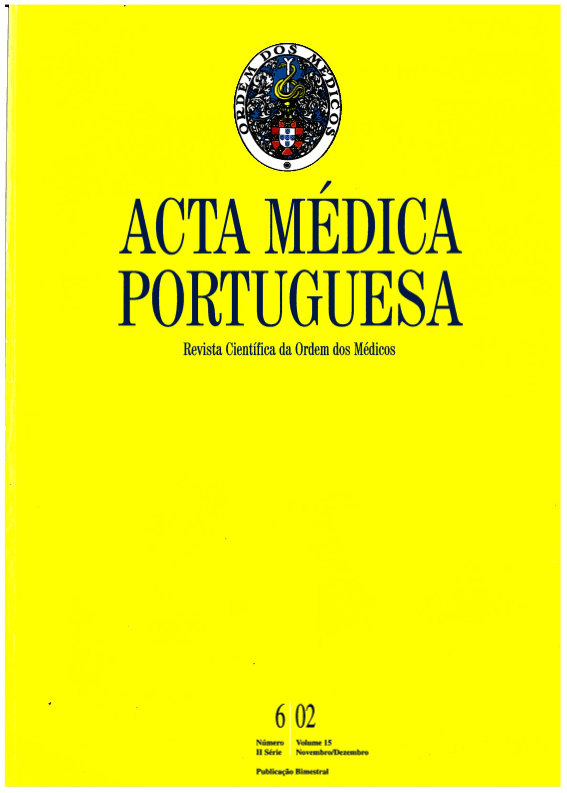Valor prognóstico da presença de sangue/coágulos no lúmen gástrico na endoscopia de urgência.
DOI:
https://doi.org/10.20344/amp.1985Resumo
In the setting of upper endoscopy after upper gastrointestinal bleeding (UGIB), the presence of blood or clots in the gastric lumen precluding the complete mucosal examination is a frequent finding.To define the prognostic value of this endoscopic finding and the need of a follow-up endoscopy.Retrospective study of 100 consecutive patients with UGIB and the endoscopic finding of blood in the stomach (Group A) and 100 at the same conditions but without this endoscopic finding (Group B). In both groups we compared the bleeding lesions and the presence of clinic, laboratorial and endoscopic signs of severity.Gastric and duodenal ulcers were the bleeding lesions more frequently identified in both groups. Lesions related to portal hypertension were more frequent in the first than in the second one. There was also a significant association with other endoscopic signs of severe haemorrhage and with the clinical signs of bad prognosis. In the follow-up endoscopy we found new lesions in 46% of the patients in the first group and only in 15% of the second one.The endoscopic finding of blood or clots in the stomach should be considered as a bad prognostic sign and lead to a second endoscopy.Downloads
Downloads
Como Citar
Edição
Secção
Licença
Todos os artigos publicados na AMP são de acesso aberto e cumprem os requisitos das agências de financiamento ou instituições académicas. Relativamente à utilização por terceiros a AMP rege-se pelos termos da licença Creative Commons ‘Atribuição – Uso Não-Comercial – (CC-BY-NC)’.
É da responsabilidade do autor obter permissão para reproduzir figuras, tabelas, etc., de outras publicações. Após a aceitação de um artigo, os autores serão convidados a preencher uma “Declaração de Responsabilidade Autoral e Partilha de Direitos de Autor “(http://www.actamedicaportuguesa.com/info/AMP-NormasPublicacao.pdf) e a “Declaração de Potenciais Conflitos de Interesse” (http://www.icmje.org/conflicts-of-interest) do ICMJE. Será enviado um e-mail ao autor correspondente, confirmando a receção do manuscrito.
Após a publicação, os autores ficam autorizados a disponibilizar os seus artigos em repositórios das suas instituições de origem, desde que mencionem sempre onde foram publicados e de acordo com a licença Creative Commons









